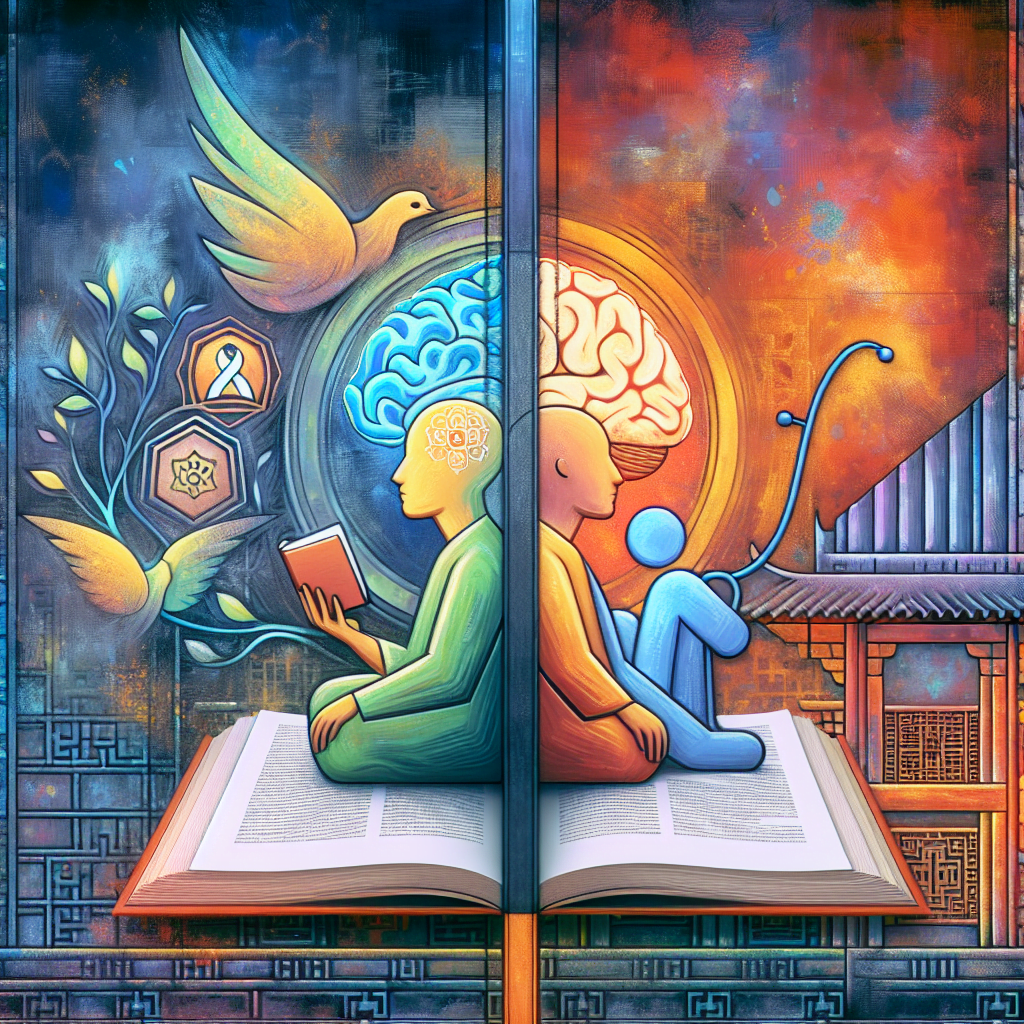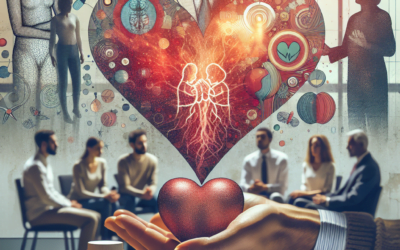Enhancing Emotional Wellbeing: Benefits of EAP Services and Couple Counseling Post-Divorce
Whether it’s from workplace stress or personal issues like divorce, maintaining emotional wellbeing can be challenging. Luckily, there are resources like Employee Assistance Programs (EAP) and couple counseling post-divorce to provide necessary support.
Your Emotional Wellbeing Matters
In a Spartan, yet relaxed vein, it’s important to realize that your emotional wellbeing isn’t something you can afford to gamble with. Emotional wellbeing isn’t just about feeling good; it’s also instrumental to your overall health. It impacts how we think, feel, and act, and therefore affects how we handle stress, relate to others, and make choices.
Think of the sources of stress in your life. There’s a good chance workplace stress hovers near the top of that list, right next to relationship issues. We spend a large chunk of our lives at work, and nowadays, with blurred work-life boundaries, workplace stress can seep into our personal lives, affecting our emotional stability.
On the other hand, relationship issues, such as split-ups or divorce, can be equally challenging. We, as humans, are wired for connection. When those connections break, the emotional pain can be intense, leading to anxiety, depression, and other mental health conditions.
However, regardless of whether this stress shows its face in the form of strained relationships at work or home, it’s essential to recognize it for what it is: a significant drain on our emotional wellbeing. Understanding this is the first step towards seeking the assistance necessary for effective stress management.
Unpacking Employee Assistance Programs (EAP Services)
EAP Services, or Employee Assistance Programs, are employer-sponsored initiatives designed to ensure that employees have access to vital resources necessary for navigating life’s difficulties. They also aim to improve productivity in the workplace by ensuring the emotional wellbeing of employees.
Mental Health Management
At their core, EAP Services manage a range of mental health and relationship issues that might affect an employee’s ability to work effectively. By acknowledging that employees have lives beyond office walls, these programs can significantly impact work performance positively. Stress, anxiety, and personal turmoil, such as divorce, can drastically affect work performance, and EAP Services support in mitigating these impacts.
Boosting Mental Health
EAP Services provide numerous benefits that bolster mental health. They are not just reactive—providing therapy as needed—but also proactive, organizing thematic seminars promoting mental health wellbeing threaded through openness and de-stigmatization of mental health issues. These resources help employees to better understand their mental health and learn beneficial coping strategies and techniques.
Relationship Support
Moreover, employees facing relationship turbulence can significantly benefit from EAP Services. Whether facing difficult decisions or dealing with a divorce’s aftermath, these services can be critical in establishing a new normal and finding emotional stability. EAP Services connect employees with experienced, professional counselors who provide necessary guidance to navigate difficult relationship situations.
Critical Role of EAP Services
EAP services are more than just ‘nice-to-have’ features—they are a cornerstone of the modern work domain. As corroborated by the Harvard Business Review and Access Perks Blog, EAP Services can reduce turnover rates, increase employee productivity, and even boost overall job satisfaction. By prioritizing employees’ emotional wellbeing, EAP Services help create a healthier workplace and foster a compassionate corporate culture that makes employees feel seen, heard, and supported.
Section Summary
EAP Services, or Employee Assistance Programs, are employer-led initiatives providing vital resources for mental health management and relationship support. By acknowledging employees’ lives extend beyond the workplace, these services can aid in handling stress, anxiety, and personal turmoil. EAP services also host proactive seminars on mental health and connect employees with professional counselors for relationship support. These services are essential in modern workplaces and can lead to reduced turnover rates, increased productivity, and improved job satisfaction.
The Power of Couple Counseling
One of the first steps in navigating relationship turmoil, potentially even avoiding the finality of divorce, might lie within couple counseling, also known as couple therapy. An often-underestimated powerhouse, couple counseling is a comprehensive process aimed at resolving conflicts and improving relationship satisfaction.
Sure, the term ‘couple counseling’ can seem quite formal – maybe you’re picturing a stiff, clinical environment with a stern-faced counselor. But really, it’s an intimate, casual setting designed to foster open, honest dialogue. The room you’re in? A safe place, a welcoming environment where problems are laid bare and solutions take shape.
At the heart of couple counseling are various tried and tested therapy techniques. Notable ones include the Gottman Method, focused on promoting respect and affection, and Emotionally Focused Therapy, intended to help partners create secure bonds. What technique a counselor utilizes varies and is dependent on your specific problems – it’s not a one-size-fits-all solution.
But what’s in it for you? What advantages could there possibly be in airing out your relationship’s dirty laundry? Plenty, as it turns out. Couple counseling can promote better communication, removing the mental block or fear that may be hindering honest conversation. It teaches problem-solving skills, equipping partners with tools to effectively handle their issues. Couple counseling can also trigger self-awakening, enhancing understanding of your emotional needs and those of your partner.
Let’s not forget that couple counseling offers professional help from trained experts in the field. Their guidance, experienced and unbiased, can provide a neutral perspective to your conflicts, help you discover the roots of your issues, and support you in charting a course towards resolution.
Don’t brush couple counseling under the rug, even when the going gets tough. This professional help could be your beacon of hope when relationship issues become overwhelming, and a pivotal step in enhancing your emotional wellbeing.
Post-Divorce Counseling: Road to Recovery
After the dissolution of a relationship as significant as a marriage, the path to rediscovery and emotional healing is unique for each individual. A divorce triggers a wide range of emotions, and navigating through this emotional labyrinth requires a specialized approach. That’s where post-divorce therapy steps in.
Therapists play a key role in post-divorce recovery. A major part of their job involves entering this personal space, striding alongside you as you take the difficult journey forward. Equipped with the required professional training and empathetic understanding, therapists ensure that the road to recovery isn’t as lonely or intimidating as it may seem.
Post-divorce counseling is a resource that empowers you to move forward. Integrating the past, present, and the future into a coherent narrative helps you to regain your sense of self, which is often lost during a divorce. Therapists help you to validate your feelings, manage emotional stress, and cope with the change, big or small, by providing strategies and tools that are tailored to your unique circumstances.
In an article on LinkedIn by Michelle Mumford, she observes the positive influences therapy has on one’s transition post-divorce. She emphasizes that finding viable post-divorce support can be an instrumental factor in easing the transition from a life once shared to molding a new, independent life.
Post-divorce is all about reinventing yourself while making sense of your past as you adapt to your new identity. It’s about healing and moving forward. It is about knowing that it’s okay to ask for professional help when things seem too overwhelming. It is about understanding the importance of therapy in navigating with elegance and resilience through the, often tumultuous, waves of post-divorce life.
So, buckle up and brace yourself for the healing journey that lies ahead. Through self-awareness and self-love, therapeutic guidance, and commitment to overcoming challenges, we’ll find ourselves embarking on a road to recovery – a journey that ends with an emotionally healthier, stronger you.
Improving Emotional Wellbeing through Therapy
Gone are the days when seeking therapy was stigmatized. Today, therapy is valued for its significant positive impact on emotional wellbeing, particularly in stressful situations like workplace challenges and post-divorce transitions.
Different therapeutic techniques cater to various needs. Cognitive Behavioral Therapy (CBT), for instance, focuses on managing problems by changing how one thinks and behaves. Meanwhile, mindfulness-based therapies strengthen our ability to stay present and let go of negative thought patterns.
In both personal turmoil and workplace stress, therapy offers an avenue for healthy emotional management. It’s like a guided tour within yourself, where you explore your feelings and thoughts, and then learn to navigate them smartly.
EAP services often provide such therapeutic assistance, offering a haven of support for employees battling workplace stress. They render services like stress management and conflict resolution, fostering an environment for emotional wellbeing while ensuring productivity.
Post-divorce, things can turn pretty messy, emotionally speaking. Here, therapy plays a transformative role. It acts as a guide, helping individuals navigate through the waves of post-divorce emotions – anger, heartbreak, fear, and sometimes, relief. Couple counseling or individual therapy can foster healthy coping mechanisms, empowering one to regain emotional balance and move forward with resilience.
Health support also ties in beautifully within this framework. Imagine having a health-based support system helping you maintain physical health while therapy takes care of your emotional wellbeing. Both services complement each other, working in unison to mitigate stress and boost overall health.
To learn more on these subjects, give a quick peek to our in-house articles: enhancing couple relationships and HR’s role in managing employee work-life balance. Use them as resources to understand how therapeutic support shapes emotional wellbeing, both in the personal and professional sphere.
Conclusion
The threads of our emotional wellbeing intricately weave through every part of our lives, affecting our productivity at work, our relationships, and even our individual sense of self. Given its monumental importance, it’s crucial we prioritize nurturing it. EAP services and post-divorce couple counseling play a key role in protecting and enhancing emotional health, acting as guided professionals committed to bolstering our resilience and helping us navigate life’s challenging times – the workplace stress, divorces, and the consequent toll they take.
Employee Assistance Programs (EAP) extend a supportive hand in the corporate landscape, offering mental health resources that pertain to both professional and personal life, making them a significant asset for dealing with workplace stress and beyond. Their advantages, as extensively detailed by HBR and Access Perks Blog, become evident not only in a better work environment but also in improved personal relationships.
Post-divorce couple counseling, on the other hand, serves as a tailored method to cope with the emotional aftermath of separation. It takes us on a carefully guided journey, helping us emancipate ourselves from the emotional debris and facilitating a smoother transition to the future, as Michelle Mumford reflected in her LinkedIn article.
Together, EAP services and post-divorce couple counseling construct a sturdy, expansive bridge – one that links the world of emotional turmoil with the land of mental tranquility, resilience, and enhanced wellbeing. So, let’s walk this bridge; let’s knock on the doors of these resources when we need to. After all, our emotional wellbeing isn’t a simple blueprint; it’s a complex, ever-evolving construct that deserves care, attention, and professional assistance when required. Let’s embrace the opportunities to help ourselves, because a healthier, happier emotional life awaits on the other side.





0 Comments